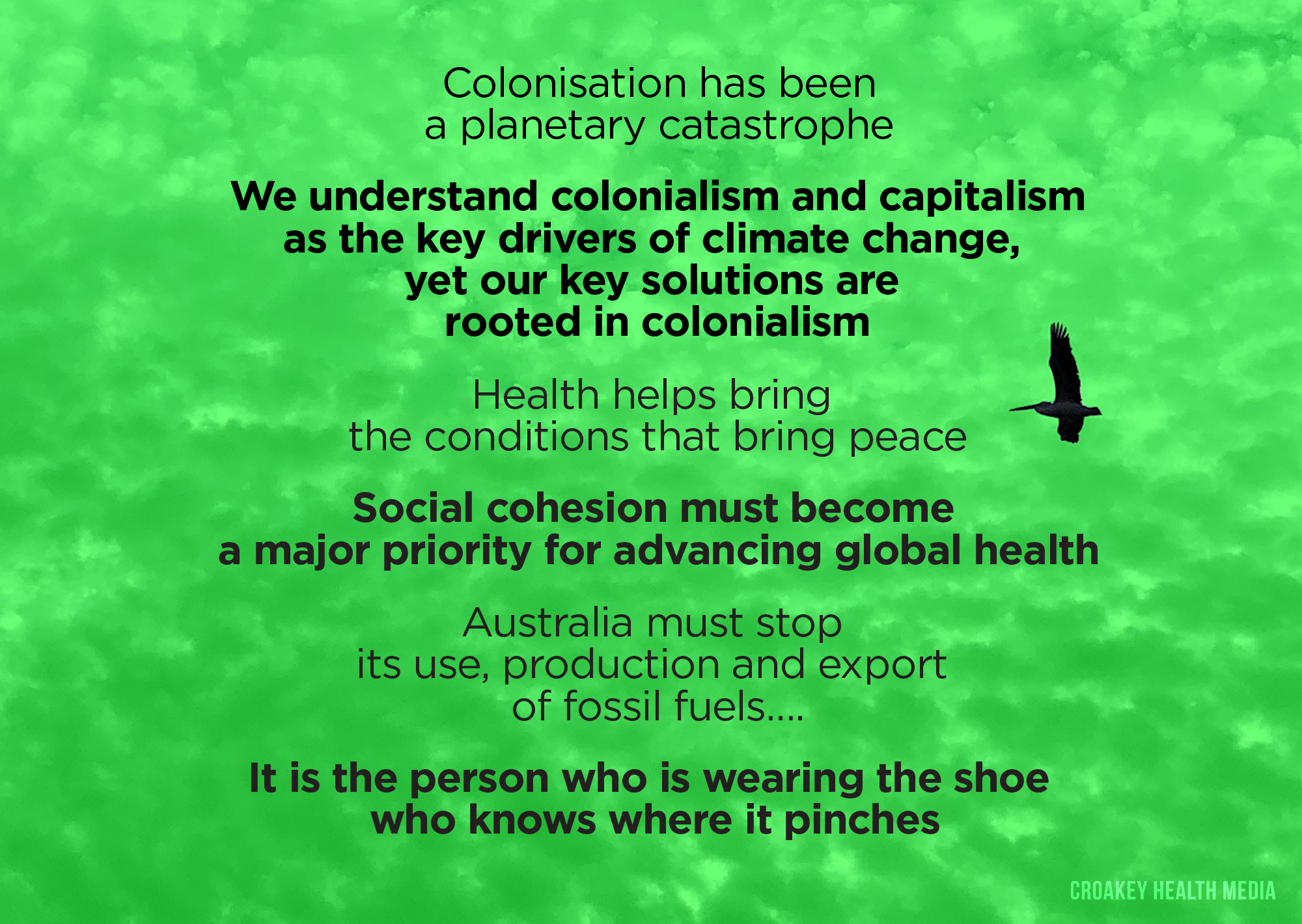Croakey’s @WePublicHealth account has been re-tweeting from the World Health Summit Regional Meeting in Naarm/Melbourne this week.
While long-distance re-tweeting is no substitute for being ‘in the room’, we have compiled a selection of quotable quotes from the conference that may be of interest and use for Croakey readers. (Warm thanks to all who helped share the news at #WHSMelbourne2024).
Below are some selected quotes; further down you can see the sources for these quotes. And we also report on a new publication aimed at advancing Indigenous peoples’ rights and wellbeing, ‘Health: A Political Choice’.

Quotable quotes
Colonisation has been a planetary catastrophe.
We understand colonialism and capitalism as the key drivers of climate change, yet our key solutions are rooted in colonialism.
We must be honest about our history, our racist structures and policies, we must have an imagination for a future that is better for our grandchildren.
We spent 90 percent of our time indoors but indoor air quality is not regulated.
Australia must stop its use, production and export of fossil fuels….
Health is not created in the health system alone.
In 2024 we must ask, how have we allowed commercial actors to have so much influence over health?
Neoliberalism isn’t working – we know we can do better.
Equity and social justice are more than just a nice thing to have. Inequality fuels fragmentation and decreases social cohesion, which impacts us all.
Primary prevention of violence against women needs to be trauma-informed in practice, healing focused, strengths-based and adapt to different geographic contexts.
Health helps bring the conditions that bring peace.
Social cohesion must become a major priority for advancing global health.
Global health is essentially about politics – and we are seeing the undermining and declining of trust in the context of politics, polarisation, rising national and power.
Geopolitics is manifesting in a way that is creating imbalances in a world in which our leaders are distracted from what is important.
Health isn’t always on centre stage when policy is made – so we do need to think and act strategically to position health as a political priority.
It is the person who is wearing the shoe who knows where it pinches.
Advancing Indigenous rights
This new publication, ‘Health: A Political Choice’, includes articles by Professor Cath Chamberlain, Professor Karen Andrews, Professor Helen Milroy, Professor Marcia Langton, Dr Kristin Smith, Professor Raglan Maddox and many others.
It also includes a focus on decolonising public health, via an interview with Emma Rawson-Te Patu, President-elect of the World Federation of Public Health Associations, and this comment from World Health Organization Director-General Dr Tedros Adhanom Ghebreyesus:
To improve health outcomes of Indigenous peoples, it is imperative that we take concrete actions that are firmly rooted in the advancement of Indigenous peoples’ rights.”
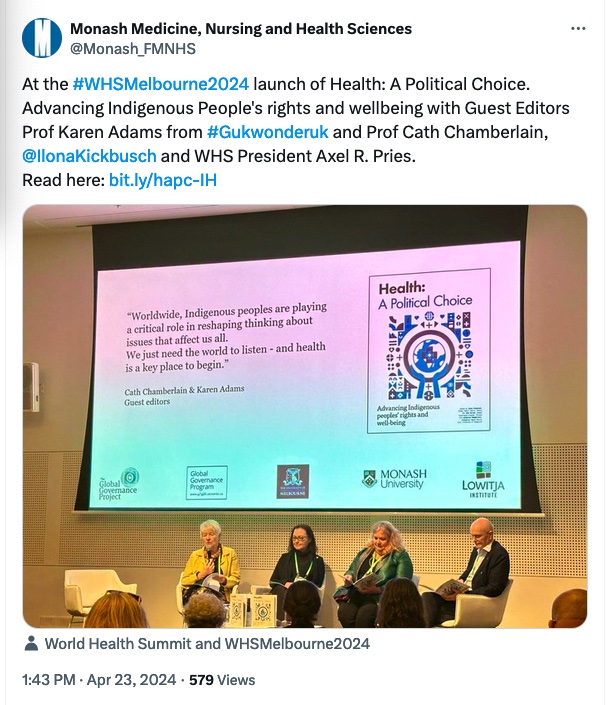
Selected tweets

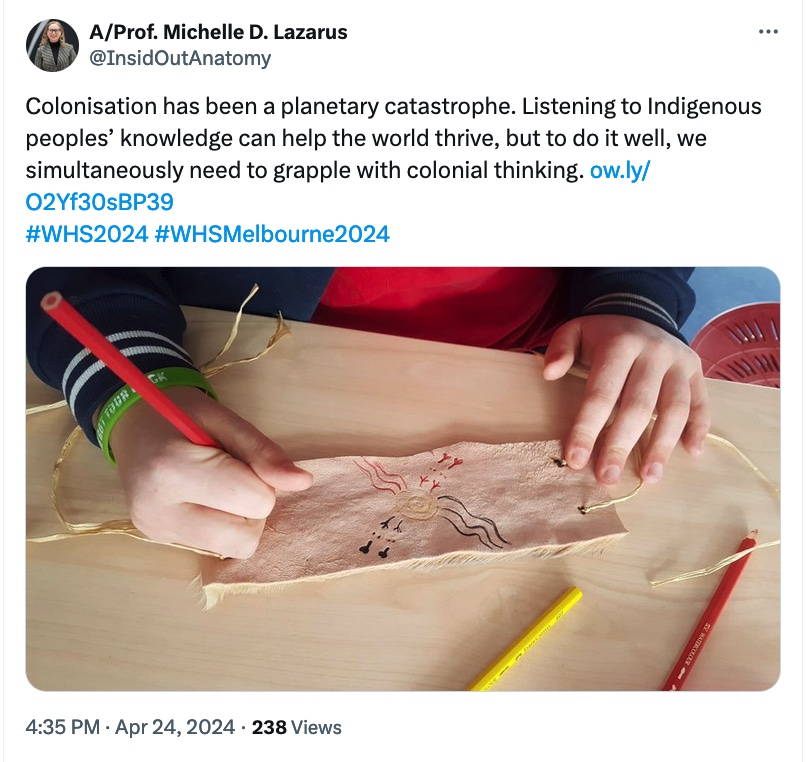 Read: It’s time to listen to Indigenous peoples’ knowledge – but how do you do that?
Read: It’s time to listen to Indigenous peoples’ knowledge – but how do you do that?
This article, by Professor Karen Adams and Professor Cath Chamberlain, notes that problematic colonial thoughts are very ingrained, and gives some examples:
- Western knowledge is superior to Indigenous knowledge
- non-Indigenous ownership or governance over Indigenous knowledge is acceptable
- devaluing elders and young ones
- patriarchy
- disconnection from Country and the non-human world
- wealth hoarding
- power, control and decision-making over Indigenous peoples’ lives
- believing Indigenous inequity is caused by Indigenous peoples and not society
- seeing equity initiatives as gifts to Indigenous peoples rather than rights
- homogenising Indigenous peoples
- erasure and changing definitions of who Indigenous peoples are
- normalising policies and structures that provide inequities.
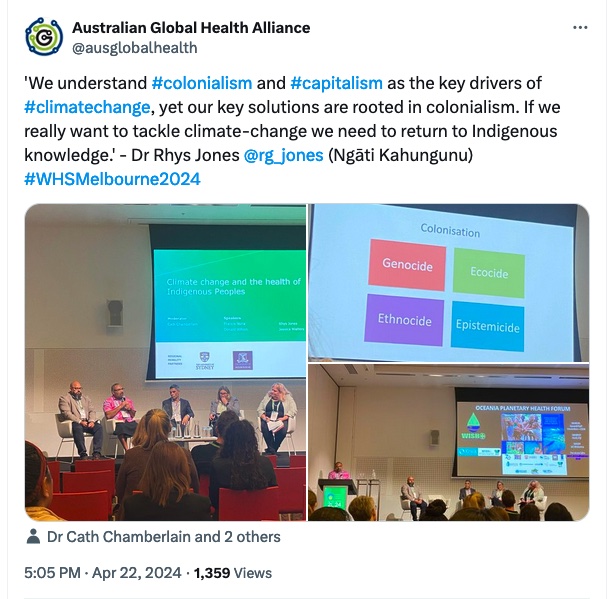
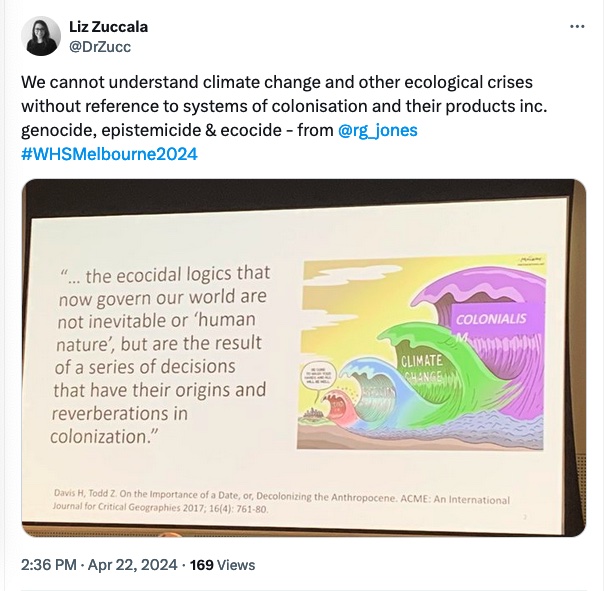
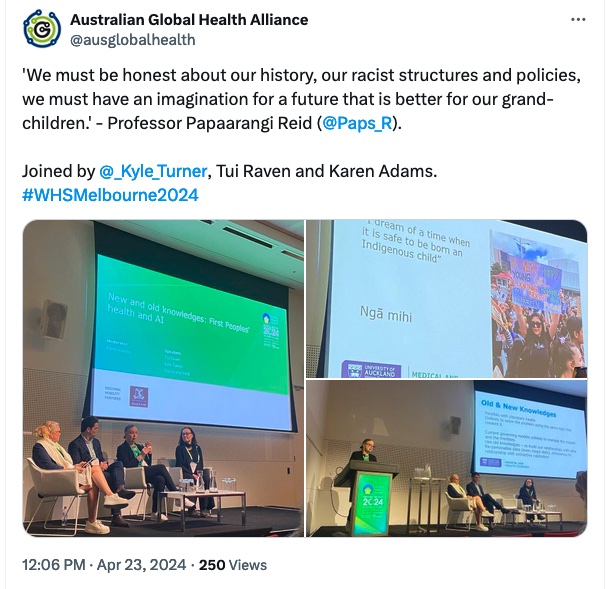
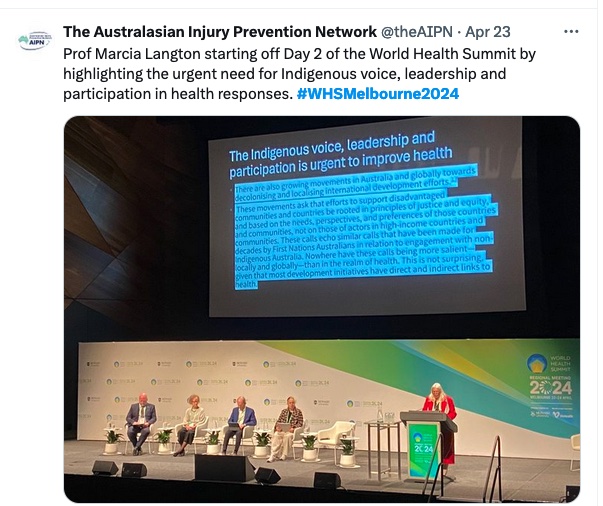
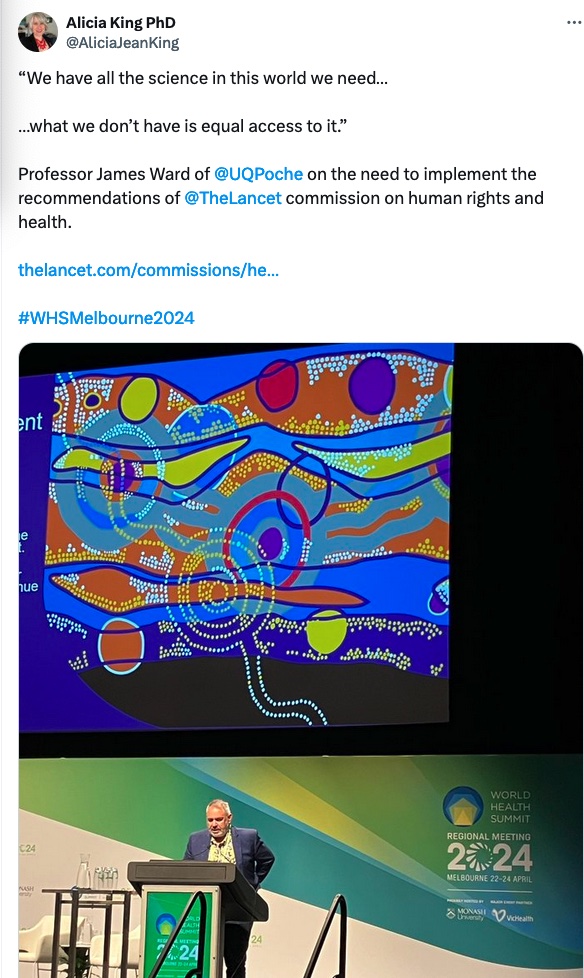
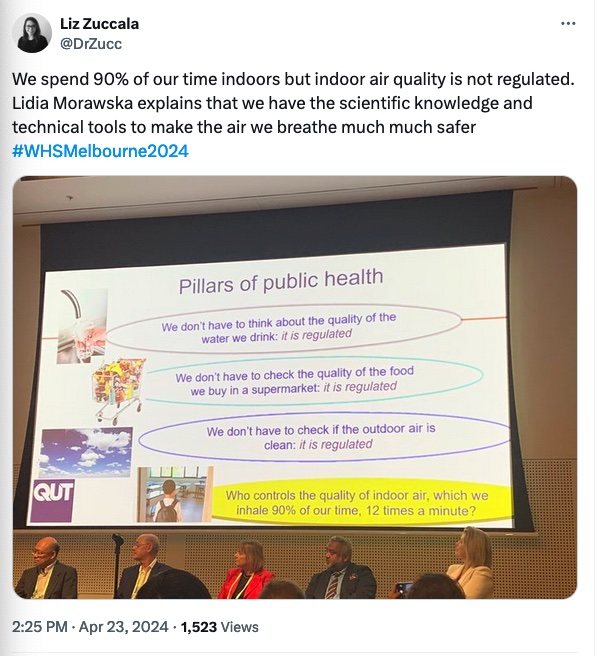
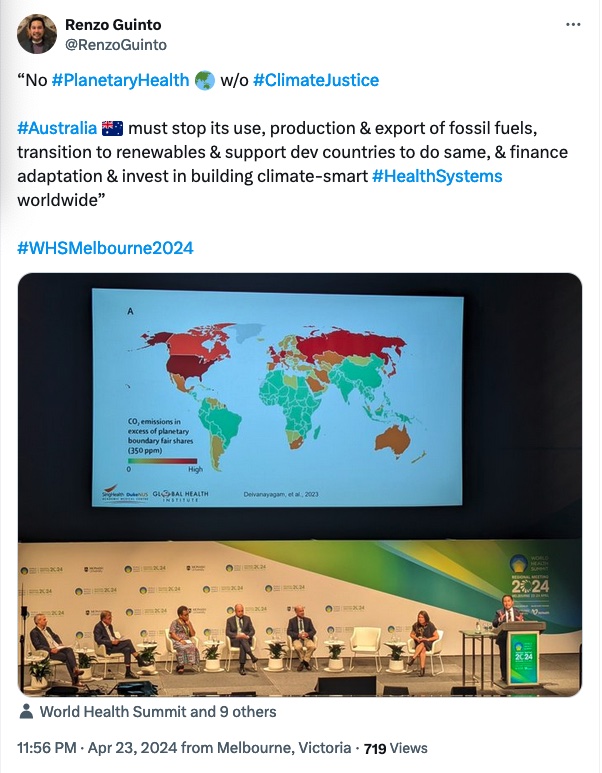


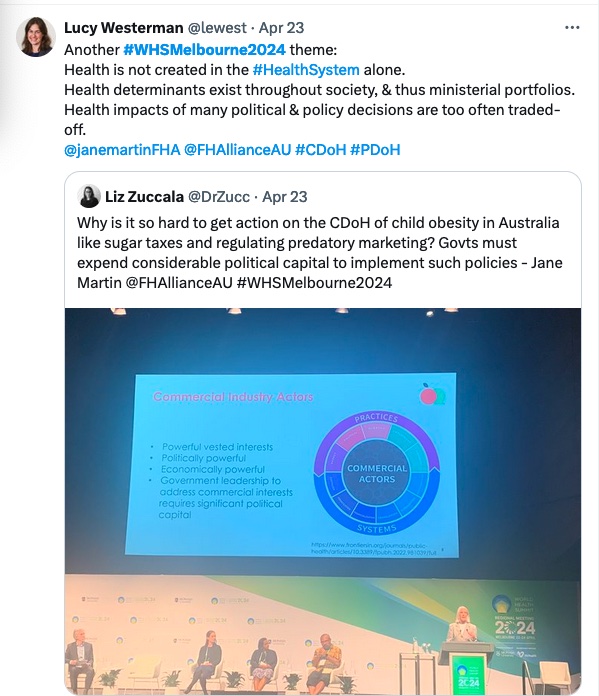
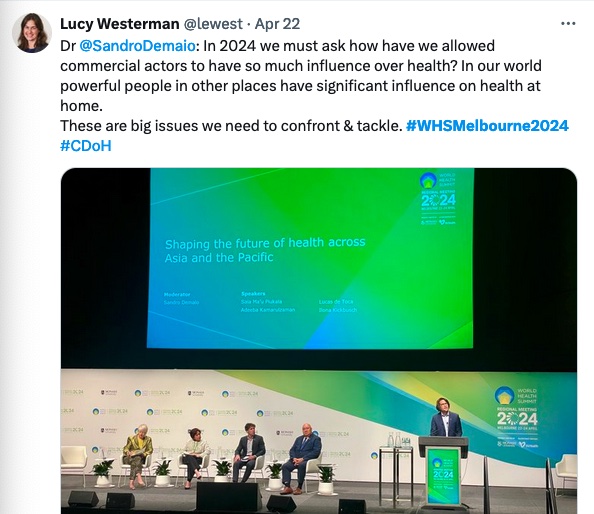
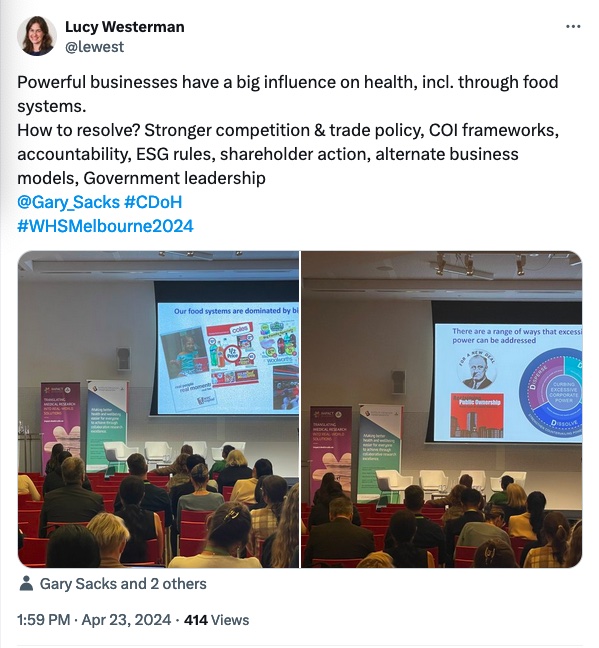



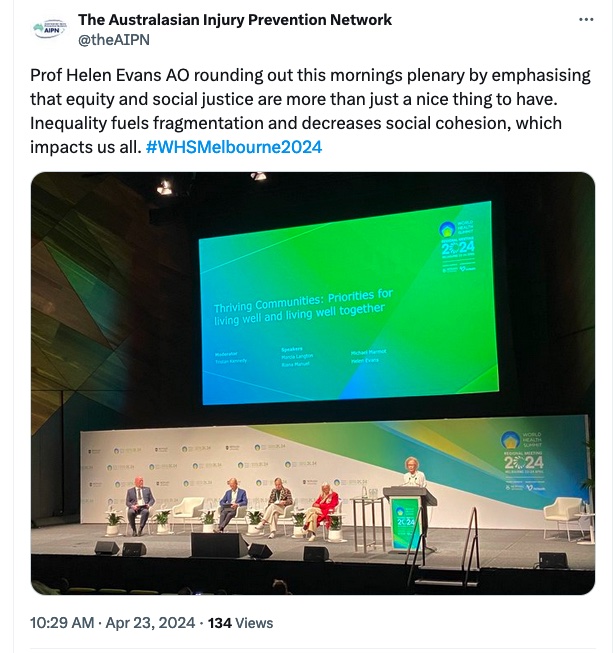
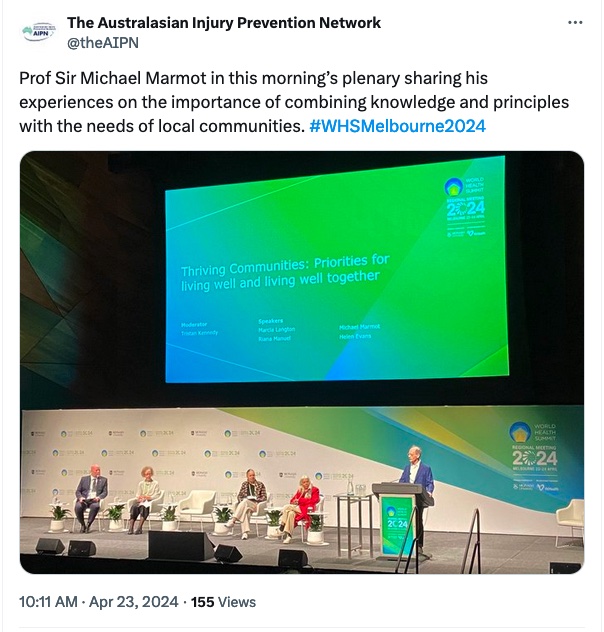
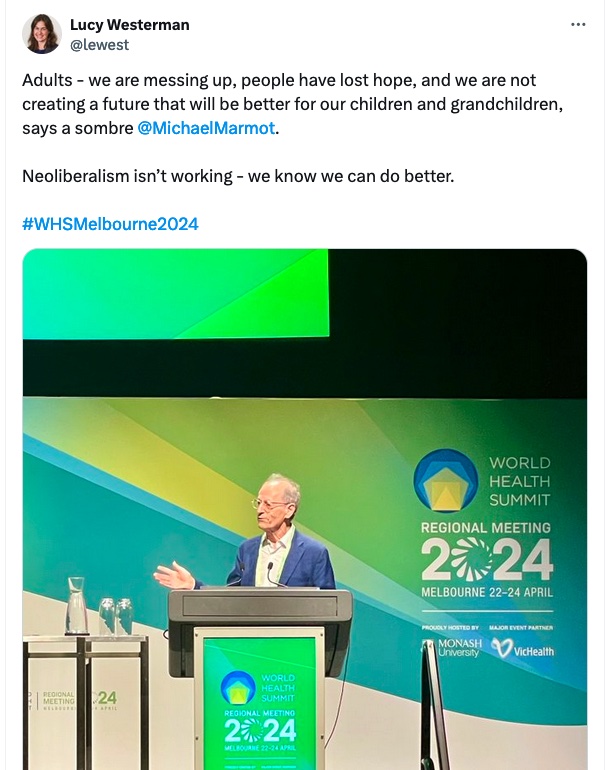






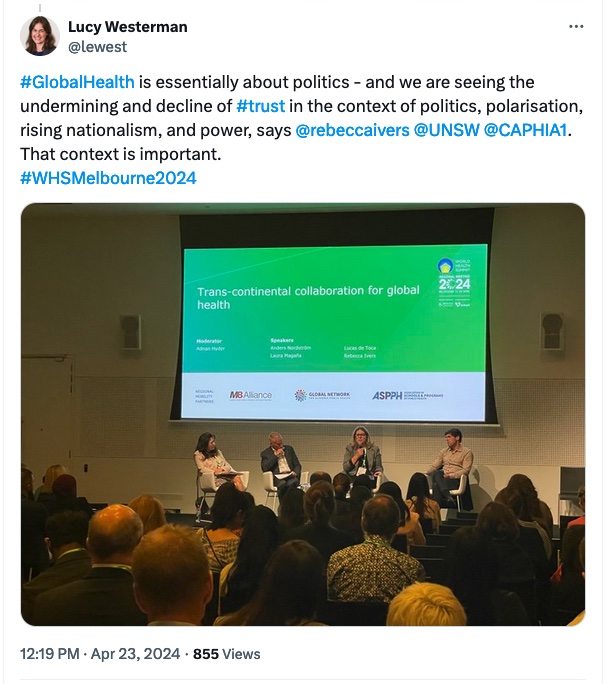
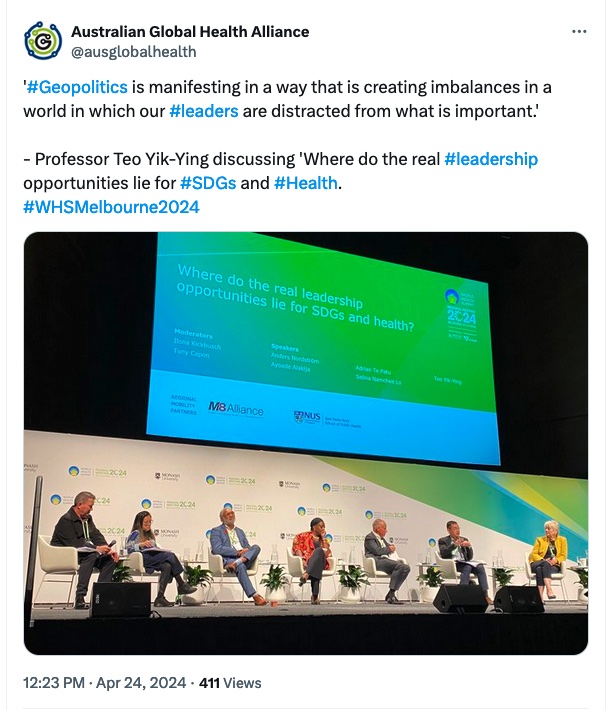

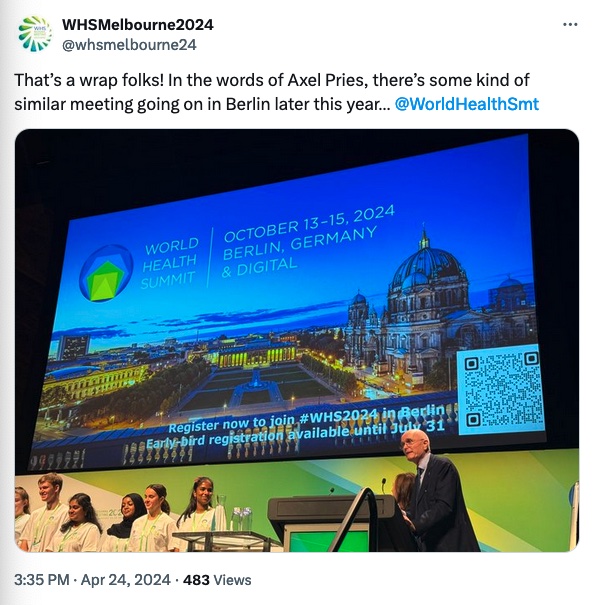
See Croakey’s archives on global health

